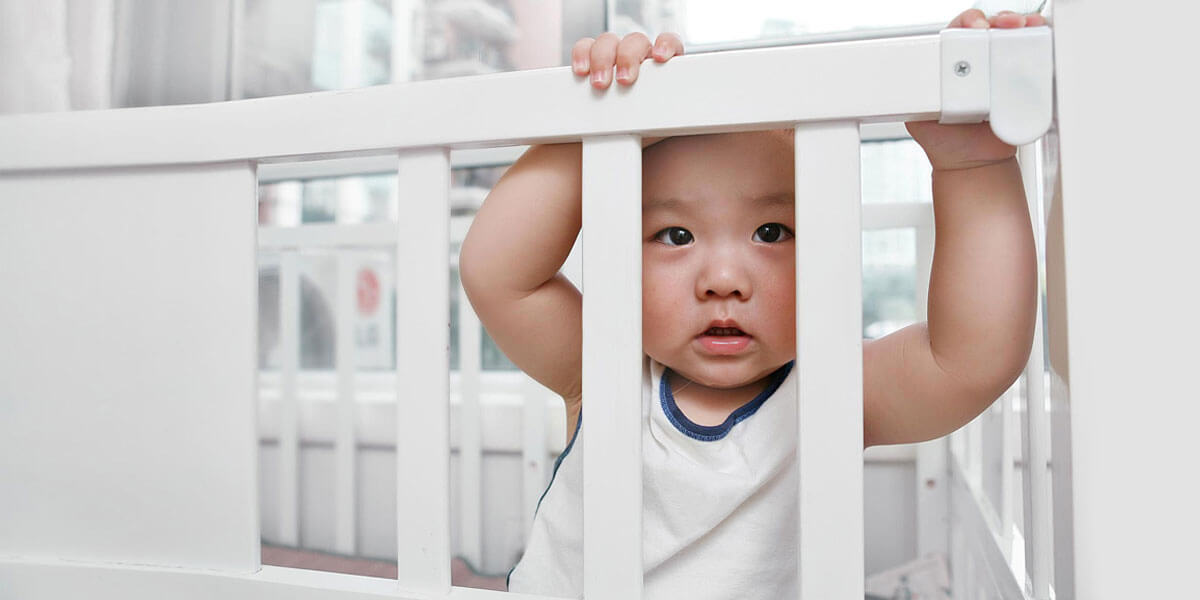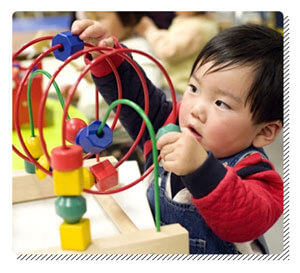Baby Won’t Sleep in Crib/Cot? Try These Tips

If you’re a new parent, you might have a lot of questions as to your baby’s sleeping schedule. We will also take this time to wish you the best of luck since newborns are very difficult to calm and you can find yourself up at all hours of the night worried about them.
Babies may just refuse to go to sleep at proper times in their cot, and this can be highly inconvenient and daunting for you. Luckily, there are reasons for this behavior – and there are ways to make your baby sleep in their crib/cot, an important exercise that will test their newfound independence. Let’s get into a guide on how to get your newborn to sleep in their crib.
Why my Baby Won’t Sleep in Crib/Cot?
If you find that your baby is constantly restless while in their crib/cot, chances are that there must be a reason they may be feeling this way. It is important to learn these babies and display patience with them since it’s a whole new experience for them too. So what can be the possible reasons your newborn won’t sleep in their crib?
1. Anxiety of separation

Psychologically, babies do not develop a sense of self till later in their lives. It is thus important to remember that babies must find it a horrifying experience to be alone for the first time in their existence.
They can often find it difficult to sleep separately, since they may be scared. Babies usually consider themselves part of the mother-child dyad, since they’re unaware of their own separate existence. Sleeping alone reinforces their separation, so try to understand the fear that your child might be going through. Separation anxiety is common and if you give in to their wants, then they may develop it for longer in their life.
2. Learning new skills

Babies love to move around, and especially when they’re given full freedom to do so! If your baby has hit a few developmental milestones early, chances are that your baby may just be engaging in some harmless fun while in the crib!
While it may be endearing to see them attempt babbling, crawling, or rolling around in their crib, it messes big time with their sleeping schedule. To prevent this, try to get in some light playtime before bed – this ensures that your children are sleepy enough and will refrain from trying any of their new skills in their cot.
3. Teething

If your baby is especially young (around 4 – 7 months), chances are that they may just be going through odontiasis, or teething. When their teeth are beginning to appear, it may result in some pains in their mouth that they will decidedly not be fond of.
During this time, you can expect your baby to display all sorts of frustration and distaste. They may develop rashes, a loss in appetite, vomit mucus and most importantly be kept up at night since it may result in sleep regression.
4. Sleep regression

If you feel like your baby had previously mastered the art of sleeping alone in their crib/cot but is presently expressing dissatisfaction once again, then it’s more than likely that they might just be going through the period of sleep regression.
It’s extremely common in young children and usually appears as irritability and fussiness during naps. It may feel like your baby’s development has been set back, but don’t fret – it’s actually a completely normal phenomenon. But trust us, these two to four weeks pass sooner than later.
5. Insecure feeling

Babies are extremely easy to terrify – so if they notice even the slightest difference in their atmosphere, they will be sent into a flurry of anxiety and be unable to sleep for the rest of the night.
Again, since they’re so used to being around you the entire time, it is difficult for them to be apart. If your child feels uneasy during the night, try to understand why what must be terrifying them – the best way to do this is to put yourself in the shoes of an infant.
6. Sickness

If you’ve eliminated all other possibilities of your baby being unable to sleep by themselves, then we’re sorry to inform you that your baby is most likely sick.
Nothing too serious, they might just be expressing discomfort because of untoward rashes, or irritation because of blocked nose problems. In cases like this, it is best to go and get them to your local pediatrician as quickly as possible. It is always better to look for prevention rather than cure.
How to get Newborn to Sleep in Crib/Cot?
Now that we’ve covered a myriad of reasons as to why your baby may find themselves unable to sleep well in their crib/cot, let’s go over how we can make it possible for them to enjoy a restful sleep instead. And for you too, of course. A happy and restful baby equals a happy and restful you too. These steps are all very simple – and after going through them, you’ll be able to eliminate any stress for your baby in order for them to sleep well.

1. Make the Crib appealing
What if your child simply isn’t attracted to the crib they’re supposed to be sleeping in? You need to have your child associate the crib with peaceful and happy times. To facilitate this, here’s what you can do: pick out a crib pattern and bedding design that soothes your baby the most. Apart from this, remember to spend time with your baby in their crib! Your baby will come to see the crib as a safe place, and somewhere they’re familiar with. This can work wonders for an anxious mind! If your crib is older then you can even get a new crib for your baby.
2. Put them down drowsy
If your baby is accustomed to drifting off to sleep with you around, then this technique will be extremely helpful. When you’re rocking your baby after a meal and they begin to get drowsy, take that time to put them in their crib right away. This will help your baby associate the feeling of being sleepy with their crib, and they’ll make a mental note to do so the next time they’re here! You’ll have to repeat this pattern many times, however.
3. Swaddle
The swaddling technique has been a godsend to all new parents who are frantic about calming their children down while they should be sleeping. The swaddle, essentially, is the act of wrapping down your baby securely – this creates a sense of safety for your baby and imitates the inside of the womb, which is familiar territory for them.
While many parents worry that it doesn’t leave the baby’s arms free, it’s probably for the best – that’s fewer chances of them hurting themselves. The swaddling should stop after the baby reaches the rolling stage, however.
4. Feed your Baby timely
It’s important to plan your day around the needs of your baby. If you introduce a strict routine in their lives pertaining to feeding, playing, and sleeping, they will stick to those routines for a while. Feeding your baby on time and then tucking them to sleep has them memorizing a routine that can help them fall asleep faster.
5. Eliminate motion
This works when your child is pretty used to sleep in the car seat or stroller, so they’ve come to regard their crib as unfamiliar territory. To fix this, you can let them remain in their car seats or strollers – but eliminate motion. Don’t drive them anywhere or move the stroller. They will then come to associate sleep with a sense of being stationary, which you can then replicate by trying to put them in the crib when they’re drowsy.
6. Maintain a soothing atmosphere in the room
This one is similar to making your child’s crib appealing to them. Introduce decor into your nursery that is soothing to the eyes and helps your baby feel happy. Spending time in the nursery is an excellent way for your baby to associate the physical space with good times! A small source of light and regulated temperatures are a must.
7. Bedtime routine
Along with feeding your baby on time, it is important to stick to a routine that is not wildly different each day. As we say, familiarity is the best thing you can offer your child. Your bedtime routine can include feeding and some bonding time, and then going off to sleep. Sticking to a routine can also help them associate their crib as a space for relaxation.
Our Advice
While it may seem heartbreaking to hear your child kicking up a fuss every night instead of going to sleep, we would advise you to give them some time to settle themselves before going to check up on them. As we mentioned, frequent interventions can result in a lack of independence for your child – which is something that can have far-reaching consequences. But apart from this, don’t worry too much.
Generations of parents have struggled with this phenomenon and have come out victorious, and we believe you can too. Just keep the reasons of why your baby won’t sleep in their cot in mind, and then try all the above-suggested methods.

Laura is a trained primary teacher who takes a profound liking in interacting with and bringing out the best in children. She is also an ISSA certified pediatrician with an extensive practice of over 12 years. Laura comprehends the needs of infants and now compresses her expertise into writing thorough parenting guides to aid new parents.






